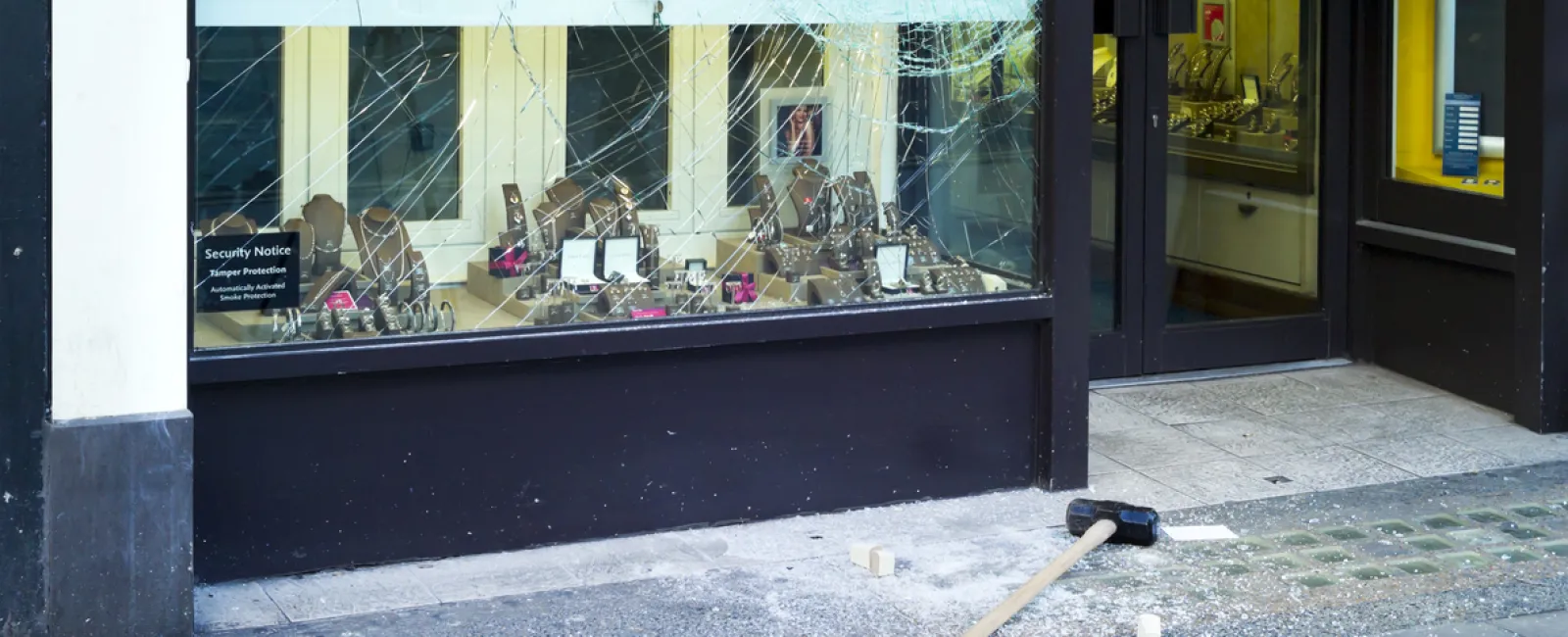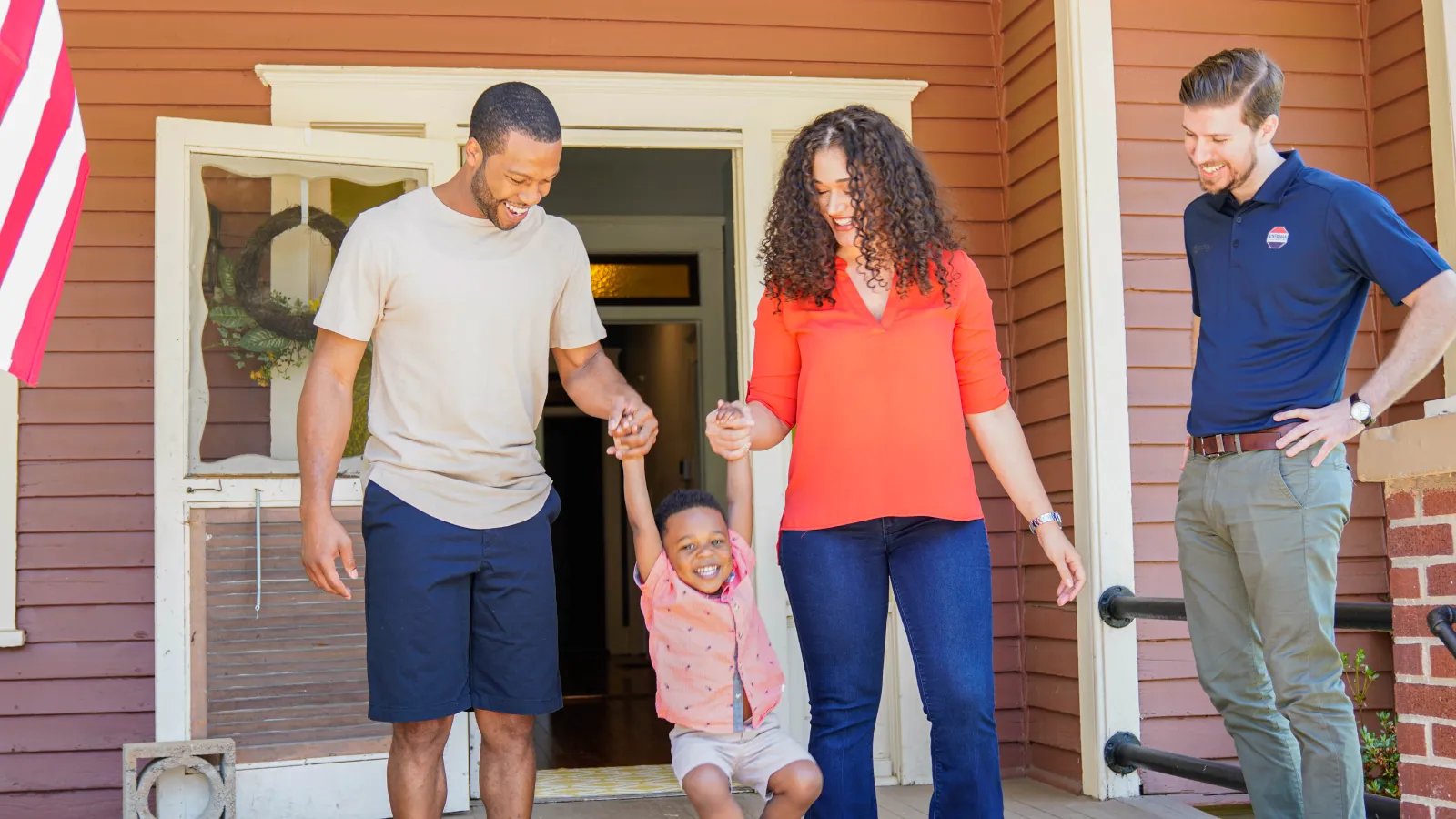Security glass is a fortified glass or glass alternative which protects a property's most vulnerable entryways and customer contact points. The panes can be strengthened to resist handheld weapons, projectiles, bullets and even explosions.
In addition to its defensive qualities, security glass is designed to break into non-lethal granules which won't lacerate the skin. Some security glass will even remain trapped within its frame after it's been broken.
This article will explain:
- The different classifications of security glass
- The types of security glass
- Alternatives to security glass
- Factors to consider when choosing a security glass
***********************
We also invite our readers to review our full suite of security products and servicesoffered by Ackerman.
Classifications & Standards of Security Glass
Commercial buildings in the U.S. require a certain standard of security glass in order to be compliant with state building codes. The organizations which provide these standards include:
- The American Society for Testing Materials (ASTM): This organization tests and standardizes security glass based on its ability to resist forced entry and explosions.
- The Underwriter's Laboratory (UL): The Underwriter's Laboratory classifies glass based on its resistance to firearms and types of bullets. For more information, see UL752, which rates bullet proof glass on a scale of 1 to 8.
- The European Standard (EN): The European Standard performs manual entry tests, classified under EN356. Tests measure how well a security glass can withstand axes, sledge hammers, torches and other attempts at forced entry.
Depending on your building type, you may need to look for glass that's been inspected, tested and approved by one of the organizations above.
Types of Security Glass
Now that we know the organizations which grade security glass and the classifications those grades are based on, let's look at the types of security glass out there on the market for a business.
Tempered Glass
Tempered or "toughened" glass is any glass that's been thermally and chemically treated to increase its strength. In addition, the glass is able to "chunk" or crumble into small granular pieces rather than knife-like shards. 
This vandalized telephone booth was outfitted with tempered glass. Like most tempered glass, it doesn't hold up under sustained physical attack. But it's less likely to cut if it breaks.
Uses: Vehicles, earthquake-prone areas
- Pros:Cheap, easy to install, stronger than standard float glass, mostly harmless if broken.
- Cons: Not a true security glass, as it can be broken fairly easy. Must be ordered to size, long delivery times.
Laminated Glass
Laminated glass is created by sandwiching a durable plastic interlayer (usually polyvinyl butyral, or PVB) between two panes of strengthened glass. The glass and PVB are chemically bonded to one another during the manufacturing process, making it incredibly difficult to break.
Laminated glass doubles as a safety glass. When the glazing it struck, it breaks within the frame, but is held in place by the PVB.

Another important aspect of laminated glass is that additional layers of glass and PVB can be added during the manufacturing process. Once laminated glass reaches a certain thickness (around 5 cm or more) it becomes bullet proof, meeting UL752 bullet proof standards up to level 8 (the highest possible).
In the image on the right for example, this bulletproof glass has taken three shots from a hand gun, and that still wasn't enough to shatter the glass.
Uses: Aquariums, schools, banks, retail buildings, vehicles, earthquake-prone areas
- Pros: Limited bomb resistance, bullet resistance, very strong against manual forced entries and "smash-and-grab" theft.
- Cons: Expensive, strong but tends to crack easily.
Alternatives to Security Glass
Security Films
A security film is an adhesive layer of polyester materials which is retrofitted onto glass panes to increase strength and shatter-resistance. Thickness ranges between 2-15 mil, with most entry-level business security films starting between 4 and 6 mil.
Security films have become popular in recent years due to their affordability, safety and protection. The films are applied over existing glass, making it unnecessary to purchase brand new security windows. And they turn any glass into a safety glass because the films stop the glass from shattering.
While security films deserve much of the hype they've received from the industry, they aren't a perfect security solution. The strongest films offer limited resistance from bullets, but cannot be considered "bulletproof."
Uses: Retail, schools, commercial buildings, earthquake prone areas.
- Pros: Affordable, turns any glass into a safety glass, delivers solid protection, especially at 8 mil+ thickness.
- Cons: Not actually bulletproof, not even the thickest layers, unless it's added to a preexisting security glass.
Acrylic
Acrylic is a non-glass alternative comprised of a single sheet of plastic between 1¼ and 1½ inches thick. It has solid security stats (UL752 listed bulletproof up to level 3). Plus it's more affordable than laminated security glasses. All of the above make it a very popular choice for commercial buildings like banks and convenience stores.
Another benefit of acrylic is its ability to double as a safety glass. When acrylic breaks, it crumbles into dull plastic fragments.

Uses:Commercial buildings, bank teller stations
- Pros:More affordable than laminate and other plastic security glazings. Bulletproof up to UL752 Level 3. Doubles as a safety glass.
- Cons: Tends to scratch easily and requires surface coatings or the glazing will yellow.
Polycarbonate
With 300 times the impact resistance of a standard pane of float glass, glass-clad polycarbonate is one of the strongest non-glass security products on the market today. When properly installed, it can withstand multiple blows from sledgehammers, axes, flying kung-fu kicks and just about anything else you can think of.
Uses: Retail businesses, commercial businesses
- Pros: Very resistant to physical blows. Harmless if it breaks.
- Cons:Scratches easily, requires a surface coating or it will yellow after about 6 months. Lower light transmission than glass.
What Type of Security Glass Is Best for My Business?
Answering these questions may help you narrow down a possible security glass solution for your business:
- What is my business trying to protect? Does your business protect people, or products? A retail store concerned with smash-and-grab theft won't require the same level of protection as a bank looking to protect its tellers from an armed robbery.

A criminal demonstrates the value of safety glass. - Do I need indoor or outdoor security glass? Bulletproof plastics like acrylic are more commonly used indoors, whereas tempered and laminated security glass protect store windows and entry/exit doors.
- What is the crime like in your area? Every business should have some protection from break-ins. But the level of protection may differ depending on how much (and what type of) crime occurs to commercial properties in your area.
***************
Would you like to learn more about adding security glass to your business property? Call Ackerman at 800.552.1111 and schedule your free security consultation today.






